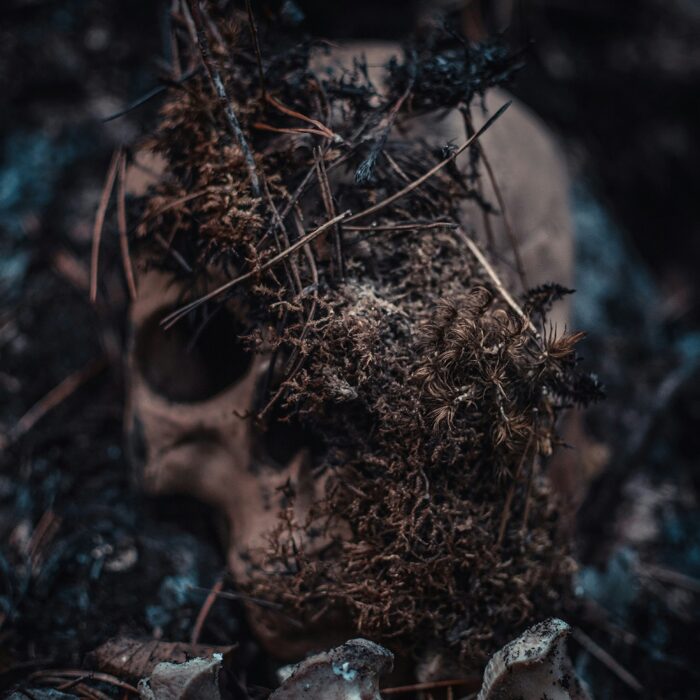You have no items in your cart. Want to get some nice things?
Go shoppingAt seventeen I was the second-best first soprano in the Lincoln High School Select Ensemble. I was beaten out for every solo and at every River Park School District competition by a girl named Julia, who had a lightness to her vibrato I could never match. What I hated most about her was her nine-year-old sister who was dying of leukemia.
It all went together so perfectly: high cheekbones and great hair, an East Coast conservatory in her future, an easily-digestible family tragedy that would one day look good on her Wikipedia page.
There was something wrong with my sister, too; we didn’t talk about it. It didn’t garner me any sympathy from the girls in choir or the director of the school musical. Sometimes I dreamed that I was lying on the linoleum floor of our old manufactured home and my father – we didn’t talk about him, either – held me down while my sister sewed my lips together.
*
The River Park competition was held in April. Every February, my vocal coach held a recital to give her students the chance to perform their pieces before competing. At the lesson after the recital, my coach and I would reflect on my strengths and weaknesses.
My diction was usually impeccable, particularly for Italian pieces. My breath support allowed me to achieve impressive resonance for a teenager. After years of practicing Ah, Ay, Ee, Oh, Oo in front of the mirror, I had learned how to form each vowel perfectly. I could soar above the staff majestically and dive below it with unprecedented brightness. But there were essentially two areas of difficulty for me.
The first was hard to label, but it caused a kind of vocal strain as I progressed through a piece. When someone like Julia took a proper breath and focused the sound in the correct place with a pure vowel – something that she always did – each note would flow out effortlessly throughout each phrase. My tone became heavy and dull over time. A gruff soreness would develop in my throat. Mechanically, this was happening because I wasn’t relaxing my jaw enough, which trapped the sound in my throat. But my coach had started to suggest recently that mechanics weren’t really the problem.
“Knowing you,” she said, “it’s probably mental. You’re not exactly the kind of person who likes to relax.”
Secondly, I wasn’t a very good actress. So much of singing was acting and I was not what you might call expressive. My voice teacher would give me analogies in hopes that I would be able to connect with the character:
“Think about how you might flirt with a cute boy in class. Wouldn’t you sort of tease him? That’s what Zerlina’s doing here. Masetto is jealous because he thinks she slept with Don Giovanni and she’s joking around with him, lovingly, to let him know that she only wants to be with him. Does that make sense?”
I nodded.
It did to an extent, mentally. I processed the text the way a computer might. I noted the measures where I was supposed to be sweet or silly or sad. Then I would smile, giggle, or frown accordingly. I figured this was normal – if not all the time, at least while singing – but for Julia, there seemed to be a step in between: authentically generating those feelings in a way that made the smile look real to the audience.
Occasionally, I worried that this missing middle man was indicative of a personal issue (i.e. cold-heartedness), but more often, I worried about its impact on the adjudicator. Vocal technique was more important for competition, but pseudo-feelings definitely didn’t help.
*
I had always been a perfectionist. As soon as I could use a marker, I began correcting things. I drew longer eyelashes and fuller lips on magazine models. To my stepfather’s amusement, I lied about my mom’s alma mater in a class assignment. When I played school with my little sister, I’d assign her homework and grade it harshly, so she’d learn there was always room for improvement.
A few months before Derek and my mom got married, we all moved into an off-white McMansion, the fourth from the left on a street of identical homes in different bland shades. My sister and I were enrolled in a new school, one that had things like computer labs and parent involvement. In addition to a biweekly music class, there was a choir club that a neighbor lady recommended my sister and I join so we’d adjust more easily.
My sister quit after a month to do something else on Wednesday afternoons. I don’t remember what because she quit that too before long. Two weeks after she left, a girl from my class begged me to audition for a solo so she wouldn’t have to do it alone. When the director heard me sing, she beamed and clapped her hands together. I don’t remember whether I enjoyed my performance at the concert, but I remember enjoying that look on the director’s face. And, for that matter, the look on my classmate’s face when she realized I was better than her.
I enjoyed hierarchy and comparison. I liked to win and I had no patience or pity for those who couldn’t compete. That’s why I resented my sister’s behavior so much.
Once when she was in fifth grade and I was in eighth grade, Derek’s mother came to visit and brought us each a King Size Hershey’s Bar. A few hours after she had gone, I was coming down the stairs and I noticed my sister standing alone in the kitchen. I could see her over the banister, but she didn’t notice me. She unwrapped her chocolate bar, broke off one section, and cut that section in half with a butter knife. She ate her half-section with a blank look on her face, then threw the rest away.
I considered saying something, but ultimately decided that if she didn’t get any attention, her interest in being anorexic would fizzle out. Three months later, she had to be hospitalized.
In third grade, she came home crying every day, claiming that she had been bullied. In fourth grade, my mom received calls that she was bullying other students. When she was seven, she went to the nurse’s office every day to complain about imaginary pain – a nonexistent cut, an invisible bruise. She started cutting in sixth grade.
The first time I caught her, I asked her why, just out of curiosity, and she said she was tired of everything, all the commotion, all the noise, and that when she slit her wrists, the sharp, burning pain filled the room with a beautiful silence. I rolled my eyes and said she was a spoiled brat.
Three and a half years older, I remembered more than her. When we were brought to the room with brightly-colored walls and all the toys, I was the one who had to answer the social worker’s questions. I figured if anyone had the right to make a scene every other day and waste all of Derek’s money on therapy that didn’t seem to be doing any good, it was me. But I kept it together.
We both had to go to counseling for a while in the beginning – it was court-ordered – and I remember that the lady told me I was strong, that nothing that happened was my fault and that it didn’t define me. I said, “I know,” because I did. The therapist smiled. I approximated a smile in return.
*
It happened a month before the River Park competition. My sister finally slit her wrists vertically (horizontally is just for attention).
Now that she was dead, we had to say something. When I went back to school in late March, my choir teacher asked if I still wanted to compete. I said practicing would keep my mind off things. Really, I suspected that word of what happened would get to the adjudicator.
I was right. I saw it in her sympathetic eyes when I slated (name, high school, song, composer). And the look in Julia’s eyes when the results were posted was enough to wipe away what little shame I’d felt for needing the adjudicator’s pity.
A few days after I got home, I threw away everything to do with singing: my song books, my pitch pipe, the character shoes I wore for musicals. Mom asked me if I’d had the idea in my head that winning would fix everything and if now that it hadn’t, I didn’t know how to cope. So I explained, calmly, that it had nothing to do with missing my sister. I knew I wasn’t exactly Met material and I was ready to set this hobby – that’s all it was – aside.
I didn’t say, because I knew she wouldn’t believe me, that winning had fixed everything. There was no need to continue singing. Now that I’d won, Mozart, Verdi, all the greatest arias – it was all just noise.

About Gabriela Tedeschi
Gabriela studies creative writing at the University of Washington in Seattle. Her journalistic work appears in the contemporary music web publication Second Inversion and the UW student newspaper, The Daily. She also writes for the UW satirical publication, Off Leash News.




